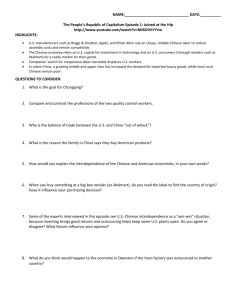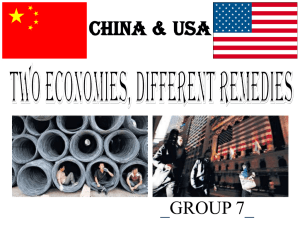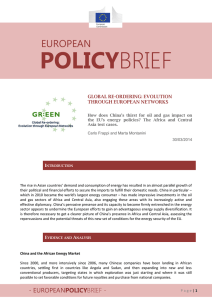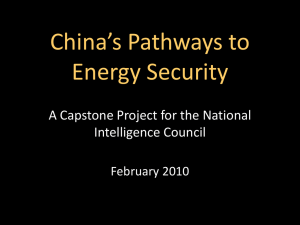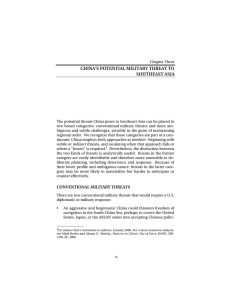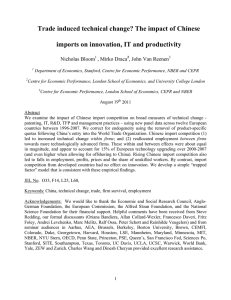CONCLUSION
advertisement
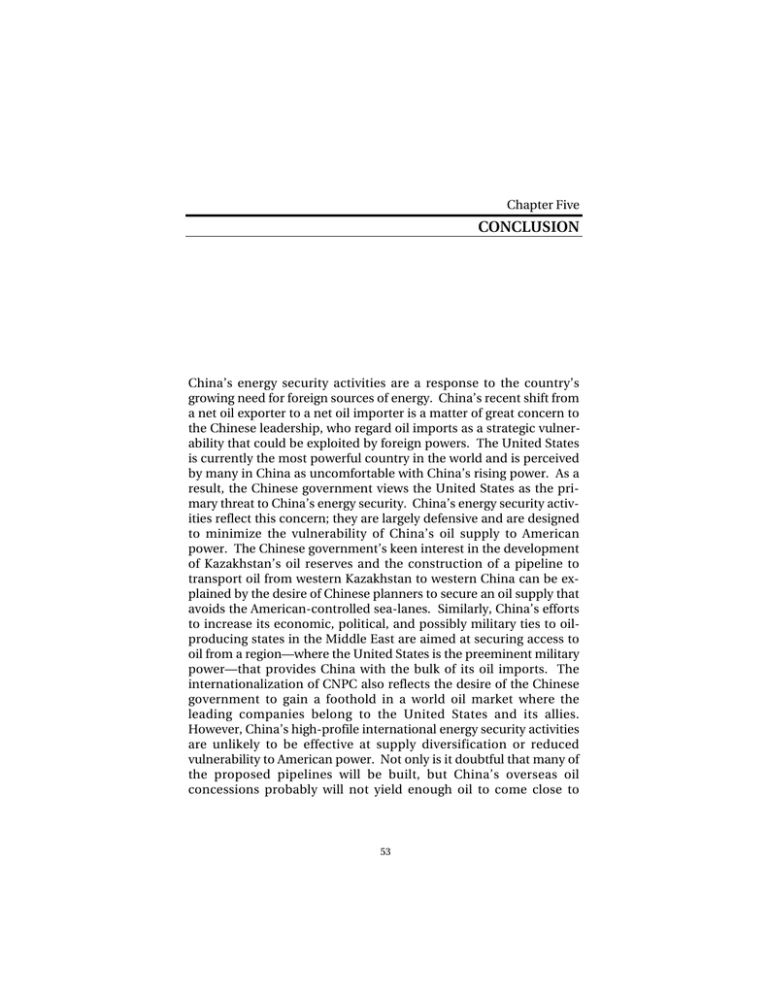
Chapter Five CONCLUSION China’s energy security activities are a response to the country’s growing need for foreign sources of energy. China’s recent shift from a net oil exporter to a net oil importer is a matter of great concern to the Chinese leadership, who regard oil imports as a strategic vulnerability that could be exploited by foreign powers. The United States is currently the most powerful country in the world and is perceived by many in China as uncomfortable with China’s rising power. As a result, the Chinese government views the United States as the primary threat to China’s energy security. China’s energy security activities reflect this concern; they are largely defensive and are designed to minimize the vulnerability of China’s oil supply to American power. The Chinese government’s keen interest in the development of Kazakhstan’s oil reserves and the construction of a pipeline to transport oil from western Kazakhstan to western China can be explained by the desire of Chinese planners to secure an oil supply that avoids the American-controlled sea-lanes. Similarly, China’s efforts to increase its economic, political, and possibly military ties to oilproducing states in the Middle East are aimed at securing access to oil from a region—where the United States is the preeminent military power—that provides China with the bulk of its oil imports. The internationalization of CNPC also reflects the desire of the Chinese government to gain a foothold in a world oil market where the leading companies belong to the United States and its allies. However, China’s high-profile international energy security activities are unlikely to be effective at supply diversification or reduced vulnerability to American power. Not only is it doubtful that many of the proposed pipelines will be built, but China’s overseas oil concessions probably will not yield enough oil to come close to 53 54 China’s Quest for Energy Security matching China’s needs over the next two decades. Furthermore, most of the oil produced in China’s foreign concessions will not physically enter China because of transportation and logistical costs. The oil will most likely be sold on the international market or swapped for oil that will enter China. Consequently, China will remain reliant on U.S. protection of the sea-lanes for its energy (in)security.






